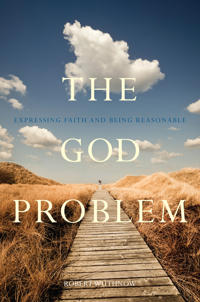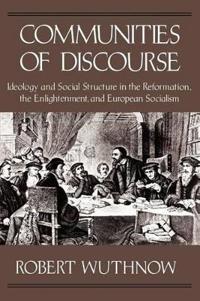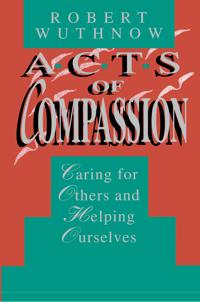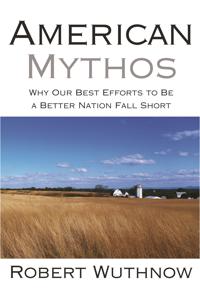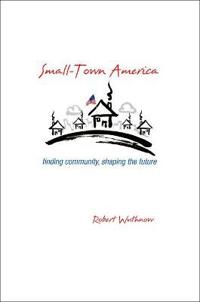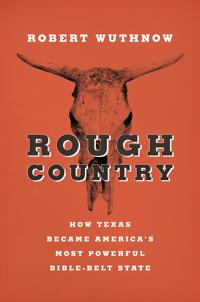Crisis in the Churches, The: Spiritual Malaise, Fiscal Woe (Inbunden)
avRobert Wuthnow
ISBN: 9780195110203 - UTGIVEN: 1997-03-01Religion and the Global Politics of Human Rights (Pocket)
avThomas Banchoff, Robert Wuthnow, Thomas Banchoff
ISBN: 9780195343380 - UTGIVEN: 201105Are human rights universal or the product of specific cultures? Is democracy a necessary condition for the achievement of human rights in practice? And when, if ever, is it legitimate for external actors to impose their understandings of human rights upon particular countries? In the contemporary co[...]
Be Very Afraid: The Cultural Response to Terror, Pandemics, Environmental Devastation, Nuclear Annihilation, and Other Threats (Inbunden)
avRobert Wuthnow
ISBN: 9780199730872 - UTGIVEN: 2010-05-27Meaning and Moral Order (Häftad)
avRobert Wuthnow
ISBN: 9780520066212 - UTGIVEN: 198904"Meaning and Moral Order" goes beyond classical, neoclassical, and poststructural theories of culture in its attempt to move away from problems of meaning to a more objective concept of culture. Innovative, controversial, challenging, it will compel scholars to rethink many of the assumptions on whi[...]
Boundless Faith: The Global Outreach of American Churches (Övrig)
avRobert Wuthnow
ISBN: 9780520268081 - UTGIVEN: 2010-10-12In "Boundless Faith", the first book to look systematically at American Christianity in relation to globalization, Robert Wuthnow shows that American Christianity is increasingly influenced by globalization and is, in turn, playing a larger role in other countries and in U.S. policies and programs a[...]
The God Problem (Inbunden)
avRobert Wuthnow
ISBN: 9780520274280 - UTGIVEN: 2012-10The United States is one of the most highly educated societies on earth, and also one of the most religious. In "The God Problem", Robert Wuthnow examines how middle class Americans juggle the seemingly paradoxical relationship between faith and reason. Based on exceptionally rich and candid intervi[...]
Communities of Discourse (Pocket)
avRobert Wuthnow
ISBN: 9780674151659 - UTGIVEN: 1993-03Sociologist Robert Wuthnow notes remarkable similarities in the social conditions surrounding three of the greatest challenges to the status quo in the development of modern society - the Protestant Reformation, the Enlightenment, and the rise of Marxist Socialism.[...]
Restructuring of American Religion, The: Society and Faith Since World War II (Pocket)
avRobert Wuthnow
ISBN: 9780691020570 - UTGIVEN: 1990-01-01Acts of Compassion (Häftad)
avRobert Wuthnow
ISBN: 9780691024936 - UTGIVEN: 1993-05In this title, Robert Wuthnow finds that those who are most involved in acts of compassion are no less individualistic than anyone else - and that those who are the most intensely individualistic are no less involved in caring for others.[...]
Poor Richard's Principle: Recovering the American Dream Through the Moral Dimension of Work, Business and Money (Övrig)
avRobert Wuthnow
ISBN: 9780691058955 - UTGIVEN: 1998-01-12The American Dream is in serious danger, according to Robert Wuthnow - not because of economic conditions, but because its moral underpinnings have been forgotten. In the past this vision was not simply a formula for success, but a moral perspective that framed our thinking about work and money in t[...]
Saving America?: Faith-Based Services and the Future of Civil Society (Övrig)
avRobert Wuthnow
ISBN: 9780691126289 - UTGIVEN: 2006-01-30On January 29, 2001, President George W. Bush signed an executive order creating the White House Office of Faith-Based and Community Initiatives. This action marked a key step toward institutionalizing an idea that emerged in the mid-1990s under the Clinton administration - the transfer of some soci[...]
America and the Challenges of Religious Diversity (Övrig)
avRobert Wuthnow
ISBN: 9780691134116 - UTGIVEN: 2007-07-02Muslims, Hindus, Buddhists, and adherents of other non-Western religions have become a significant presence in the United States in recent years. Yet many Americans continue to regard the United States as a Christian society. How are we adapting to the new diversity? Do we casually announce that we [...]
American Mythos (Häftad)
avRobert Wuthnow
ISBN: 9780691138558 - UTGIVEN: 2008-07America was built on stories: tales of grateful immigrants arriving at Ellis Island, Horatio Alger-style transformations, self-made men, and the Protestant work ethic. In this new book, renowned sociologist Robert Wuthnow examines these most American of stories--narratives about individualism, immig[...]
Red State Religion: Faith and Politics in America's Heartland (Övrig)
avRobert Wuthnow
ISBN: 9780691150550 - UTGIVEN: 2011-11-14No state has voted Republican more consistently or widely or for longer than Kansas. To understand red state politics, Kansas is the place. It is also the place to understand red state religion. The Kansas Board of Education has repeatedly challenged the teaching of evolution, Kansas voters overwhel[...]
Small-Town America (Inbunden)
avRobert Wuthnow
ISBN: 9780691157207 - UTGIVEN: 201306More than thirty million Americans live in small, out-of-the-way places. Many of them could have chosen to join the vast majority of Americans who live in cities and suburbs. They could live closer to better paying jobs, more convenient shopping, a wider range of educational opportunities, and more [...]
Remaking the Heartland: Middle America Since the 1950s (Pocket)
avRobert Wuthnow
ISBN: 9780691158020 - UTGIVEN: 2013-03-26Rough Country (Inbunden)
avRobert Wuthnow
ISBN: 9780691159898 - UTGIVEN: 2014-07Tracing the intersection of religion, race, and power in Texas from Reconstruction through the rise of the Religious Right and the failed presidential bid of Governor Rick Perry, Rough Country illuminates American history since the Civil War in new ways, demonstrating that Texas's story is also Amer[...]
Red State Religion: Faith and Politics in America's Heartland (Pocket)
avRobert Wuthnow
ISBN: 9780691160894 - UTGIVEN: 2014-03-31






